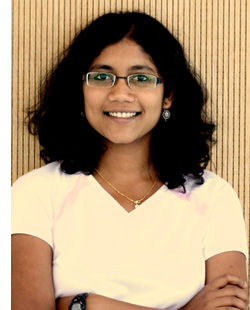
Regardless of your ultimate career goals, you should have the time of your life in graduate school and do your best to make your education count. Four years ago, when I received an offer to pursue a Ph.D. in physics at Cornell University, I was ecstatic. What I didn’t know then was that this initial excitement would soon vanish. What lay ahead were years filled with challenges and choices, both academic and personal. Here are a few ways to handle the difficult aspects of graduate school and have a good time doing it.
Find the right group. As an international student, I found that moving to a country with a different educational system and culture was a huge adjustment. I learned that choosing a good research group was crucial to making this transition easier. It is important to seek out a happy and balanced environment that is compatible with your research interests. The easiest way to figure out whether a group is right for you is to interact with the members and advisor. This will allow you to gauge the general level of satisfaction within the group, which ultimately sets the tone for your Ph.D. research. You should also be careful when choosing your research topic. If you keep an open mind, you will discover research opportunities that you might never have considered when you first applied.
Push your limits. I have found that working on multiple projects simultaneously is a great way to keep life and work on track during my Ph.D. studies. Although it may be difficult to balance different priorities and learn new things at the same time, this approach increases your chances of success and builds confidence. Being engaged with multiple ventures allows you to continue being productive when one of them doesn’t work out. It also prevents you from feeling cynical and pessimistic.
Communicate. Have you ever wished that you had the courage to express your views? Don’t hesitate to share your thoughts and ideas, however silly they may seem to you. Brainstorming is an effective way to generate concrete research problems and ideas. Effective communication helps you to achieve exposure for your work, both amongst your peers and across the wider research community. Half-hearted communication can lead to misunderstandings and consequently wasted time and work. Often a one-on-one chat with your colleague or advisor can solve many problems.
Network and participate. Isolation can lead to a disastrous Ph.D. experience. Share your work with others and learn about their achievements as well. Networking also fosters mutual growth for those involved and introduces you to a vast pool of resources that you can draw from. It is also important to give back to the community. This could include participating in outreach programs, organizing student seminars or other such activities. What you sacrifice in time you’ll gain in new skills, connections and accomplishments.
Have a social life. You might think that working days and nights in the lab will put you on the fast track to your degree. In reality, this is not the case. Working weekends and staying up late in the lab can lead to exhaustion, which is detrimental to both you and your work. All work and no play makes for dull grad students. Having good friends and taking part in social activities diverts your mind from the research grind and reminds you that there is life outside the lab.
Think about the big picture. My motivation for overcoming day-to-day frustrations often comes from thinking about my future and my larger dreams and goals. I strongly suggest this kind of periodic self-evaluation. Think of grad school not as an end in itself, but as a stepping-stone to even greater success.
Kasturi Saha (ks652@cornell.edu) is a 5th year graduate student in Alexander Gaeta’s group in the School of Applied and Engineering Physics at Cornell University. She works in close collaboration with Michal Lipson’s group in the School of Electrical and Computer Engineering. She received her B.Sc. from St. Stephen’s College, Delhi, India, and her M.Sc. in Physics from the Indian Institute of Technology, Delhi.
